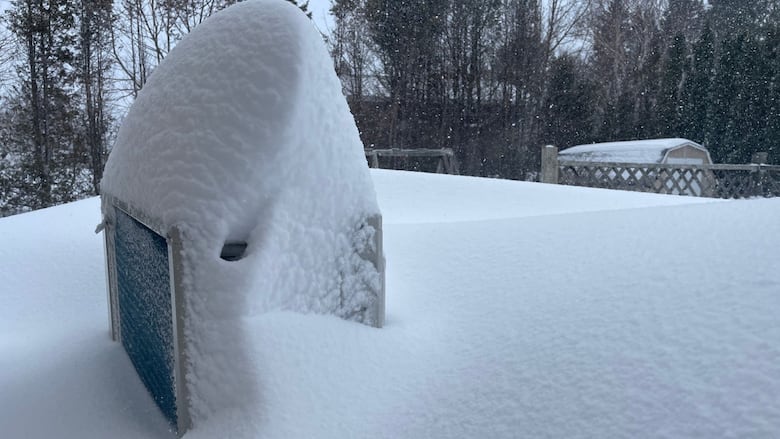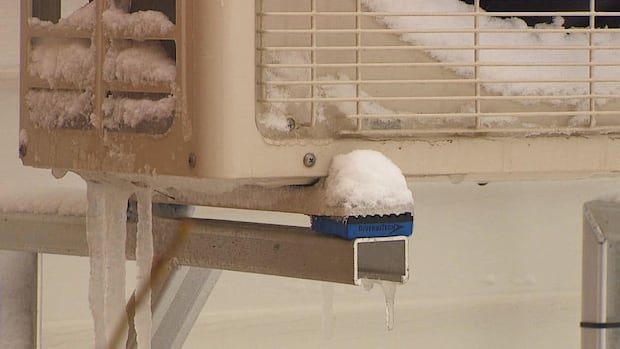Heat pumps need to be kept from freezing, experts warn in wake of major storm
'Keep the snow 2 or 3 feet away from them at all times,' heat pump owners advised

While it can be a challenge during major weather events, it's important to keep the outdoor portions of heat pumps free of snow and ice to ensure they are working correctly, say people who maintain them.
"The coils back there, they'll freeze up and the heat pump won't be able to be able to draw the air it has to draw to work efficiently," said Shane Noonan, owner of Envirocare Heat Pumps and Cleaning on Prince Edward Island.
"It could cause a bunch of different problems. The unit itself will probably shut down in most cases. It can cause gas leaks, broken parts — it could cause quite a bit of damage."
There are steps you can take before a snowfall to cut down on issues. That includes removing any snow before more falls and clearing out any debris such as small branches or leaves stuck in the outdoor part of the unit, Noonan said.
- Get the news you need without restrictions. Download our free CBC News app.
And don't forget to look up as well. "If the eavestroughs are filled up and leaking, they'll leak down on top of the machine, which causes, you know, freeze-up from excess water," Noonan said.
"Keep the snow two or three feet away from them at all times."

Others in the industry echo that advice.
"Keep it cleaned, keep it shoveled out," said Daniel Goguen, owner of Tradewinds Heating and Cooling, when asked to give advice to Island heat pump owners, many of whom will be going through their first winter with the units.
"They should just shovel it out, just like they would shovel out their walkway," he said, adding that the units' fans usually blow snow away from the machines, so they won't get covered unless snowfall is significant.
An error code can occur on the indoor portion of a heat pump due to parts freezing up, but don't assume a problem is due to the weather. Noonan said error codes can occur for several reasons, including a dirty filter. He said they should be cleaned once a month.
To rid the exterior part of a unit from an ice accumulation, Noonan said to make sure the power to the unit is shut off. Then take water that is warm to hot (but not boiling) and pour it over the outside of the machine to help it defrost.
"Do all the back of the coils, the sides, in where the fan motor is, in there, do that. If you don't have access to a… hose you can bucket the water out and manually put it in with a cup, as long as you are getting the ice off."
There are some snowclearing techniques people shouldn't use, though.
"Don't bang on the ice if your machine is frozen up outside," Goguen said, noting that the coils are made of a very soft metal. "When you bang on the ice, the energy will flow through and bend the steel and really affect the larger performance of your machine."
"Some people have said they have used a heat gun, but I would say 'no.' You're putting too much excess heat in there… you may do some damage," Noonan said.
To cover or not to cover?
Another option is getting a cover to prevent snow from accumulating in the first place, Noonan said.
"You can buy shelters for them but you have to be careful with that too. They do have to breathe so you can't enclose them totally but… there are companies around that will sell those enclosures."
Goguen advises against covers, saying they can in some cases hinder the operation of the machine.
"The machine needs air, so if you are restricting it by any means, it will affect the workings of the machine. If you bought a proper machine for the weather, it should not need a shelter," he said.
With files from Alex MacIsaac.


